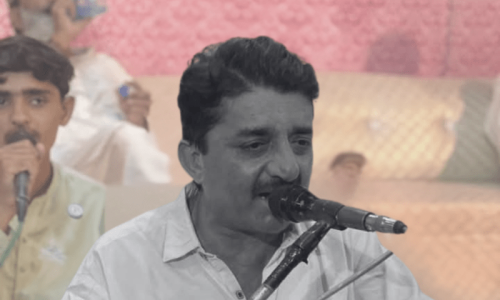PESHAWAR: A Peshawar High Court bench on Thursday sought comments from Khyber Pakhtunkhwa chief minister, federal law secretary and other respondents within 14 days in response to a writ petition, challenging the recent legislation meant to protect the laws, which were enforced in the erstwhile Federally Administered Tribal Areas and Provincially Administered Tribal Areas, including one governing the internment centres.
The bench of Justice Ikramullah Khan and Justice Musarrat Hilali put on notice attorney general for Pakistan and Khyber Pakhtunkhwa advocate general, asking them to appear in the petition on June 20.
The petition is filed by an advocate Shabbir Hussain Gigyani, pleading the court to strike down the KP Continuation of Laws in Erstwhile Pata Act, 2018, and KP Continuation of Laws in Erstwhile Fata Act, 2019, insisting the two laws violated the Constitution and the judgments of superior courts.
Petitioner wants continuation of internment centres to be declared illegal
The petitioner requested the court to suspend operation over the said two recent Acts as interim relief.
However, the bench observed that as vires of the laws were involved, therefore, it was necessary to hear the attorney general and advocate general over the issue.
Respondents in the petition are: KP Assembly through its secretary, KP chief minister, provincial chief secretary, law secretary and home secretary, KP inspector general of police, federal law secretary, KP advocate general and attorney general for Pakistan.
Shabir Gigyani contended that through the said two legislations, the government had illegally allowed continuation of all the laws, regulations, rules and notifications meant for the erstwhile Fata and Pata, including Action (in aid of civil power) Regulation, 2011.
The petitioner prayed the court to declare unconstitutional establishment of internment centres in Fata and Pata under the Action (in aid of civil power) Regulation (AACPR), 2011, and order the government to hand over all internees to the relevant courts for trial.
He also sought the court’s orders for stopping the respondents, including Khyber Pakhtunkhwa government, from promulgation of laws, rules, regulations, notifications or any other legal instrument, which discriminated the public of erstwhile Fata/Pata from rest of Khyber Pakhtunkhwa or in violation of the Constitutional and fundamental rights of the inhabitants of those areas.
Mr Gigyani argued that through the Constitution (Twenty-Fifth Amendment) Act, 2018, the erstwhile Fata and Pata had been merged with Khyber Pakhtunkhwa, while Article 247 of the Constitution under which those areas were given different status to rest of the country was omitted.
He said after the omission of Article 247 and amendments to Article 246, the discriminatory laws in practice in those areas ceased to exist and that all federal and provincial laws applicable in Khyber Pakhtunkhwa were applied to the merged tribal districts.
The petitioner, who specialises in cases of internment and enforced disappearances, said that in the past, the residents of former Fata were suppressed through discriminatory laws including Frontier Crimes Regulation (FCR) and AACPR 2011.
He said initially, the government had promulgated the Fata Interim Governance Regulation, 2018, through which a parallel judicial system was launched, but the Peshawar High Court declared it in conflict with the Constitution on October 30, 2018.
The petitioner said through the two laws, the Khyber Pakhtunkhwa government had given protection to some unconstitutional laws, including the AACPR.
He quoted from the judgment of the Supreme Court in FIGR case that “all residents of KP are similarly placed, and there is no rational basis on which the people of Fata and Pata could be distinguished from the people of the rest of the province of KP and despite now being part of this province, areas of Fata and Pata cannot be subject to an entirely different mode of dispensation of justice from the rest of the province.”
The petitioner said the internments continuing for many years fell under the definition of illegal detention, while non-production of such detainees before the relevant courts violated Section 61 of Code of Criminal Procedure and Article 10 of the Constitution.
Published in Dawn, May 31st, 2019
















































Dear visitor, the comments section is undergoing an overhaul and will return soon.